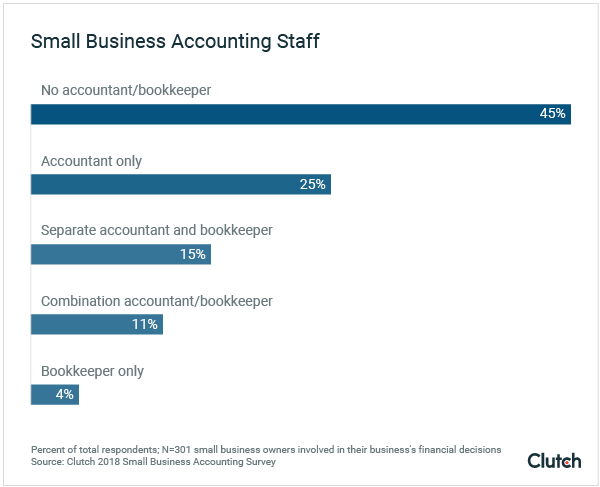In the rapidly evolving finance sector, professionals face a landscape marked by fast-paced technological changes, complex regulatory environments, and global interconnectedness. To navigate this dynamic arena successfully, finance professionals must cultivate a broad skill set that goes beyond traditional financial management. These skills not only enable them to handle current challenges but also prepare them for future advancements in the field. This article outlines the key skills that modern finance professionals need to master, emphasizing the mix of technical proficiency, strategic thinking, and ethical grounding necessary for success.
Analytical Thinking
At the core of finance is the ability to analyze data and derive meaningful insights. Analytical thinking allows finance professionals to understand and interpret complex datasets, discern patterns, and make data-driven decisions. This skill is crucial for tasks ranging from budget forecasting and financial reporting to investment management and pricing strategies. Enhancing analytical capabilities involves staying abreast of the latest analytical methodologies and continually practicing problem-solving in various financial contexts.
Financial Modeling
Financial modeling is an essential skill for any finance professional. It involves creating abstract representations of a company’s financial performance to predict future financial scenarios and make informed business decisions. Proficiency in financial modeling enables professionals to build models that simulate the potential impacts of financial decisions, market conditions, or any other variables on a company’s performance.
Strategic Education
In a field where strategic insights are crucial, continuous education becomes a key differentiator. Pursuing an advanced degree, such as an online MBA in finance, equips professionals with deeper knowledge of economic theories, corporate finance, investment banking, and strategic financial management. Programs like these not only provide valuable networking opportunities but also enhance understanding of the broader economic context that shapes financial decision-making. Moreover, an online MBA can be a flexible option, allowing professionals to learn at their own pace without interrupting their careers.
Technological Proficiency
The digital revolution has transformed the finance industry, making technological proficiency a non-negotiable skill. Finance professionals must be adept at using sophisticated financial software and platforms that facilitate algorithmic trading, automated risk management, and blockchain applications. Understanding and leveraging technologies like artificial intelligence and machine learning can also provide significant competitive advantages in optimizing financial strategies and operations. Staying current with emerging tech trends through workshops and specialized courses can help professionals maintain a cutting edge in this area.
Data Visualization
With the increasing importance of big data in finance, the ability to visually interpret and present data is more crucial than ever. Data visualization skills help finance professionals communicate complex information clearly and effectively to stakeholders who may not have a deep understanding of financial analytics. Proficiency in tools such as Tableau or Power BI is valuable, enabling professionals to create compelling charts, graphs, and interactive dashboards that make financial data accessible and actionable for decision-making processes.
Risk Management
Risk management is a fundamental skill for finance professionals, vital for protecting assets and optimizing business performance in the face of uncertainties. Effective risk management involves identifying, analyzing, and mitigating potential risks that could impact financial assets, investments, and business operations. This skill requires a deep understanding of market conditions, financial instruments, and economic indicators, as well as the ability to develop strategic plans that minimize risks and maximize returns. Continuous training in risk assessment techniques and tools is essential for staying proficient in this critical area.
Regulatory Compliance
Navigating the complex web of financial regulations is a critical skill for any finance professional. Regulatory compliance ensures that practices within finance are conducted according to both local and international laws, which can vary widely from one jurisdiction to another. Professionals must understand the relevant regulations impacting their specific area of finance, whether it’s banking, investing, or financial planning. This not only prevents costly legal issues but also builds trust with clients and stakeholders. Continuous education on current and upcoming regulations, perhaps through seminars or specialized courses, is essential to maintain compliance and uphold the integrity of financial operations.
Communication Skills
Effective communication is indispensable in finance, where complex information must be conveyed clearly and persuasively to a diverse range of stakeholders. Finance professionals need to articulate financial concepts and data to non-experts, including clients, colleagues, and regulatory bodies, in a manner that is both accessible and actionable. Developing skills in both verbal and written communication through practice, feedback, and formal training can significantly enhance a professional’s ability to influence and lead within the finance sector.
Problem-Solving
In the ever-changing landscape of finance, problem-solving skills are essential. Finance professionals face daily challenges that require innovative and practical solutions, whether it’s addressing unexpected financial shortfalls, strategizing for market changes, or optimizing financial operations. Effective problem-solving involves critical thinking, creativity, and the ability to foresee potential issues and react proactively. Professionals can hone these skills by engaging in scenario-based training, which prepares them to handle a variety of complex situations with agility and confidence.
Adaptability
Adaptability in finance is about more than just keeping up with industry trends—it involves actively embracing change and learning to thrive in a fluctuating environment. This skill is crucial for responding to the rapid technological advancements and regulatory changes that characterize modern finance. Finance professionals must continually adapt their strategies and approaches to stay competitive and meet the evolving needs of their clients and the market. Embracing lifelong learning and being open to new ideas and technologies are key components of adaptability in this field.
Conclusion
The skills outlined above are crucial for any finance professional aiming to excel in today’s complex financial landscape. These competencies help individuals not only navigate the challenges of modern finance but also seize opportunities that come with technological advancements and global market shifts. Finance professionals should commit to continuous development in these areas to maintain relevancy and achieve sustained success. Institutions offering resources like workshops, seminars, and advanced degrees, provide valuable opportunities for growth. By embracing these educational pathways, finance professionals can stay at the forefront of the industry, ready to lead and innovate in an ever-evolving marketplace.





















